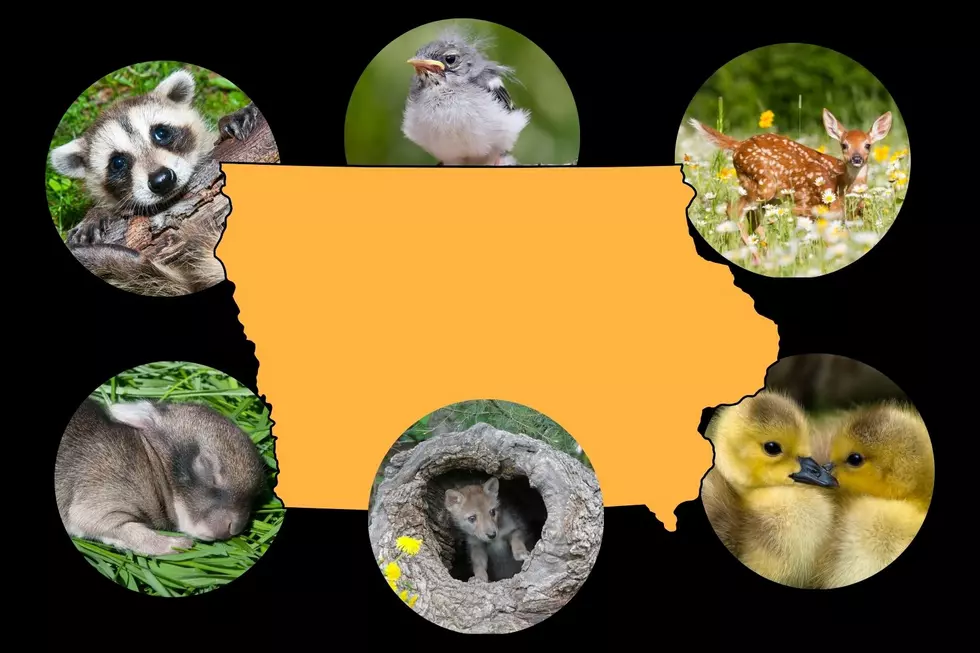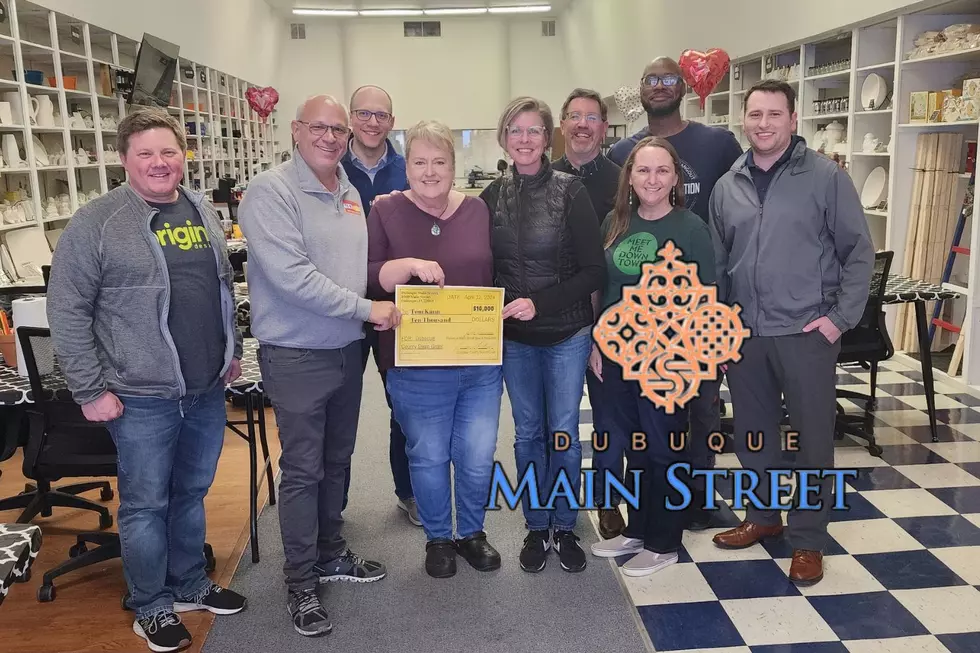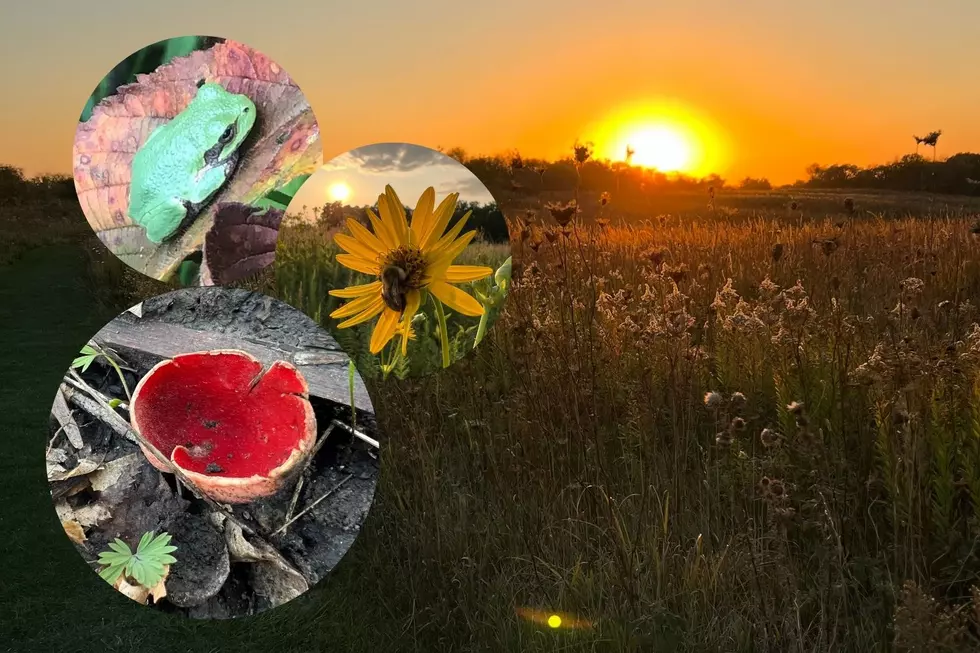
Could You Identify Iowa’s Deadliest Spider?
Most of your in-home typical spiders are silent, non-threatening, and simply looking for their next meal or drink. There are several, however, in Iowa that can be potentially dangerous and even deadly.
A list of basic spiders that you may see daily in Iowa include:
Carolina Wolf Spider
Wolf spider - female with an egg sac
Common House/Barn Spider
Dark Fishing Spider
Cellar Spider
Woodlouse Hunter Spider
Black and Yellow Garden Spider
Grass Spider
Shamrock Orb Weaver
Bold Jumping Spider
These little guys are as cute as they are scary.
While spiders may not be the most welcome of houseguests, they are very beneficial. They eat other household insects like flies and house centipedes, and can help keep your home otherwise bug-free with no chemicals. Additionally, Iowa has very few venomous species, and both tend to isolate themselves from humans. The easiest ways to relocate it safely is to sneak up on it, trap it in an upside-down glass, and slide a sturdy piece of paper over the opening. Then, just carry your spider outside and set it free to eat those peskier bugs.
Which brings us to or more venomous eight-legged friends. The ones that could potentially do some damage to your body and well-being.
3) Black-Footed Yellow Sac Spider
My house had loads of these specific spiders when we moved in and started to do some renovating. Luckily, despite being a cousin of Iowa's nastiest spider, they are not lethally venomous to humans and do not cause necrosis of flesh in the bitten area. Worst symptoms you will have pain in the area, slight swelling, and itching. Symptoms only last 7 to 10 days. These guys really only come out at night and during the day curl up in small web sacs to nap. in the corners of your ceilings and in generally hard to reach places.

2) Black Widow Spider
Female Balck Widow Spider
Here's the most venomous spider in Iowa. Quick note only the adult females have fangs long enough to deliver venom, as males are too small to pierce our skin. Females are 6 to 19 mm long—shiny black with a distinctive red hourglass-shaped mark. Sometimes a row of red spots is visible above. They have highly toxic venom, 15 times stronger than a rattlesnake, but here's where we win; they are not aggressive. If you are bitten the venom will begin to affect your nervous system. Deaths to adults are rare, but the neurotoxin can be fatal to children left untreated. These spiders avoid people and will usually choose a dark or dimly lit dry area. Dark corners, closets, or under overhangs, and in woodpiles.
1) Brown Recluse
The violin feature is the giveaway when dealing with a Brown Recluse.
Many regard the Brown Recluse as "more dangerous" than the Black Widow seen above, and here is why. Not only can the Brown Recluse be difficult to categorize or identify when stumbling upon them and can be aggressive if they feel threatened. In addition, these little guys absolutely love to live indoors with us. The brown Recluse is usually brown to grey in coloring, but what gives them away is the violin shape that runs from their head (the body of the violin) down to their thorax (the neck of the violin).
They prefer dimly lit areas like basements, closets, but may even bed down in a shoe or bed. Here's where things get a little worse for us. Bites are most common when someone accidentally steps or rolls on them while sleeping. The bite is painless, with many unaware that they have been bitten until a later time.
Bites can result in lesions, nausea, fever, and wounds that are slow to heal, becoming necrotic and sometimes causing secondary infections. Necrosis (death of cells) sets in quickly, resulting in an excruciating and gruesome “flesh-rotting” wound.
What are some quick tips for avoiding those creepy-crawlies?
Inside your home check for spiders in your:
- Basements
- Garages
- Bathrooms
- Cabinets
- Window and door entryways
Spiders end up in basements. They're underground and often offer perfect living conditions. If you have a finished basement with carpet, vacuum frequently if you want to keep spiders away. If you have unfinished floors or a finished hard surface, sweeping will keep you clear of cobwebs. Seal up your garage. Use of a localized pesticide can keep your home pest free. Spiders need water too, so be spider-aware by toilets, showers, and sinks. Spiders love clutter, so don't give them places to hide, and you will be unlikely to see them.
LOOK: 11 tick-borne illnesses and what to watch out for during your outdoor adventures
WATCH OUT: These are the deadliest animals in the world
More From Eagle 102.3









